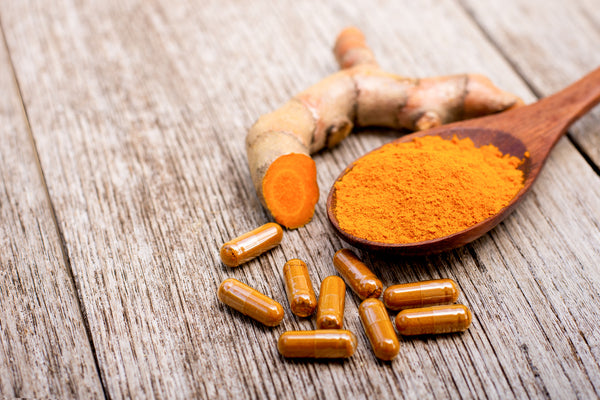Joint Pain Causes and Solutions

Joint pain is one of the most common medical complaints, especially as people age. The knee joint seems to be the most affected, but joints in the shoulders, hips, fingers, and ankles can also cause problems.
Some of the less common causes of joint pain include lupus, Lyme disease, osteomyelitis, and fibromyalgia. But by and large, the biggest causes of painful joints are arthritis, bursitis, and tendinitis.
There’s one main thing all these conditions have in common. You can see it in their names, which end in “itis.” Medically speaking, this suffix denotes inflammation.
Inflammation is tricky. In many cases, it’s beneficial and helps the body heal.
Take, for example, the inflammation that normally occurs after an injury. During this process, blood vessels dilate, allowing infection-fighting white blood cells to flood the area. Once healing is complete, the inflammation goes away.
But then there are times when inflammation causes more harm than good. In these cases, the inflammation is chronic.
With chronic inflammation, the body initiates the same response as above, but it continues indefinitely. If this process occurs in your coronary artery, you could end up with heart disease. If it affects your brain, Alzheimer’s disease can develop. And if it happens in your joints or bursa (the fluid-filled sacs that surround and cushion the joints), it can turn into arthritis or bursitis, respectively. And so on…
Obviously, this type of chronic inflammation can be detrimental over the long term. It leads to countless diseases, most of which are debilitating and even life threatening.
In the case of arthritis and other inflammatory conditions that cause joint pain, dealing with the inflammation is the most important step toward real relief.

Inflammation Relief with Curcumin
Curcumin is the active ingredient in the spice turmeric. Curcumin’s greatest benefit is its inflammation-fighting properties. It has been shown to decrease inflammation associated with arthritis as well as many other conditions.
One study looked at how patients with osteoarthritis of the knee fared after eight weeks of curcumin treatment. Fifty participants with moderate to severe arthritis took either placebo or curcumin every day for eight weeks.Their symptoms were evaluated every two weeks. After eight weeks, knee pain scores were significantly lower for most in the curcumin group vs. the placebo. The curcumin group also had lower dependence on pain medication than those in the placebo group.
Another study—a meta-analysis of eight trials—found that the pain scores in the curcumin groups were much lower than those in the placebos. There was also little difference in pain relief between over-the-counter pain medicines and curcumin. This suggests that curcumin may have similar effects as drugs, but without the harsh side effects.
Learn more about Curcumin EX Plus here.
Other Joint-Supportive Supplements
In addition to taking curcumin, you may want to give the following supplements a try. Some of them support your joints and surrounding cartilage/tissues by providing the raw materials needed to rebuild cartilage. Others are safe and effective natural pain relievers.
Glucosamine and chondroitin are the “gold standard” combination when it comes to joint repair. Glucosamine sulfate helps boost the production of glycosaminoglycans, the building blocks of joint cartilage. Chondroitin sulfate works much the same way, but it has the added benefit of putting a stop to the enzymes that degrade cartilage.
Boswellia is an herbal extract that has been shown to improve joint pain and function within as little as five days.
White willow bark is Mother Nature’s version of aspirin. It contains a compound called salicin, which is very similar to the active ingredient in aspirin. White willow bark has been used for thousands of years to reduce inflammation, lower fevers, and relieve pain. More recently, it has been researched for the treatment of low back pain, arthritis pain, and other types of musculoskeletal pain.
Collagen gives joint cartilage its strength and integrity. With age, collagen starts to break down and weaken, leading to joint pain.
One of the cheapest ways to boost collagen around your joints is to make your own bone broth using animal bones and eggshells—some of the best natural sources of collagen.
Making homemade bone broth is easy! Simply place the bones and shells in a pot and cover with water. Add one to two tablespoons of lemon juice or vinegar of your choice for every quart of water. You can also throw in some onion Simmer for up to 12 hours, then cool and strain the liquid.
An alternative to bone broth is a supplement called UC-II (undenatured type II collagen), which is derived from chicken bones. Studies show it can rebuild cartilage, relieve joint pain, and improve mobility.
You can find these anti-inflammatory and joint-supportive nutrients online and at most drug/health food stores. Or, choose one of two high-quality Newport Natural Health joint health products. Joint Renewal contains collagen and curcumin, and Joint Renewal Plus has those two ingredients along with white willow bark.
References
Nakagawa Y, et al. Short-term effects of highly-bioavailable curcumin for treating knee osteoarthritis: a randomized, double-blind, placebo-controlled prospective study. J Orthop Sci. 2014 Nov;19(6):933-9.
Daily JW, et al. Efficacy of Turmeric Extracts and Curcumin for Alleviating the Symptoms of Joint Arthritis: A Systematic Review and Meta-Analysis of Randomized Clinical Trials. J Med Food. 2016 Aug;19(8):717-29.
















